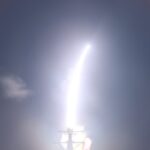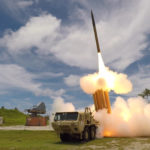CSC [CSC] late Aug. 31 afternoon said that its $4.1 billion government services business, which is set to be spun out as a separate company this fall, will acquire IT services provider SRA International at the same time the pending divestiture is completed, creating the largest pure-play IT services provider to the federal government.CSC withheld the price of the deal, but said Computer Sciences Government Services (CSGov) Services, as the new company will be called, will begin with about $2.7…
Contract Updates
R&M Government Services (Las Cruces, New Mexico) – $23,894,784
R&M Government Services,* Las Cruces, New Mexico, has been awarded a maximum $23,894,784 firm-fixed-price, indefinite-quantity contract for battery compartments. This was a sole-source acquisition using justification 10 U.S. Code 3204 (a)(1), as stated in the Federal Acquisition Regulation 6.302-1. This…
L3Harris Technologies Inc. (Clifton, New Jersey) – $9,571,947
L3Harris Technologies Inc., Clifton, New Jersey, is being awarded $9,571,947 for a firm-fixed-price contract for the procurement of 74 radio frequency amplifiers in support of Navy F/A-18E/F/G aircraft. The contract does not include an option provision. All work will be…
Sikorsky Aircraft Corp. a Lockheed Martin Co. (Stratford, Connecticut) – $21,600,000
Sikorsky Aircraft Corp., a Lockheed Martin Co., Stratford, Connecticut, is awarded a not-to-exceed $21,600,000 cost reimbursable undefinitized order (N0001926F1016) against a previously issued basic ordering agreement (N0001923G0002). This order provides for instantaneous access to 105% Transient Engine Torque test and…
Amentum Mitie Pacific LLC (Chantilly, Virginia) – $85,236,794
Amentum Mitie Pacific LLC, Chantilly, Virginia, is awarded an $85,236,794 fixed-price-award-fee, indefinite-delivery/indefinite-quantity contract for base operating support services at Navy Support Facility, Diego Garcia. Work will be performed at Diego Garcia, British Indian Ocean Territory, and is expected to be…

 By
By 











